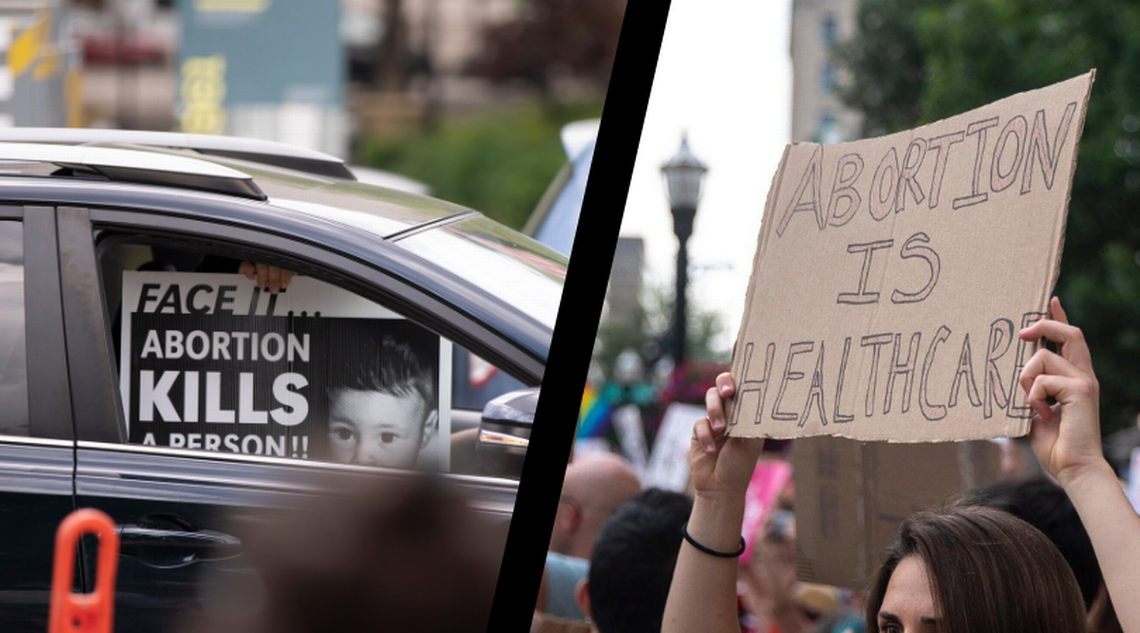Woman suing Kentucky over abortion ban learns her pregnancy is no longer viable

A pregnant Kentuckian who filed a lawsuit last week asking for a Jefferson County judge to allow her to get an abortion has learned her embryo no longer has fetal cardiac activity.
The woman, referred to in the class-action lawsuit under the pseudonym Jane Doe, was eight weeks pregnant when she asked a Jefferson County Circuit judge last week to block Kentucky’s trigger law and six-week ban from enforcement and allow her to legally terminate her pregnancy.
On Tuesday, Jane Doe’s attorneys confirmed her embryo no longer had cardiac activity, implying that she had miscarried.
Since she was pregnant at the time she signed on to the lawsuit, it appears she can continue acting as a plaintiff. She is arguing both laws violate her constitutional right to privacy, bodily autonomy and self-determination.
Kentucky has enforced a near-total ban on abortion since the U.S. Supreme Court overturned Roe v. Wade in June 2022.
In its 52-page filing on Dec. 8, the American Civil Liberties Union of Kentucky said the state’s abortion bans cause “medical, constitutional and irreparable harm” to pregnant women who wish to no longer be pregnant but are barred by state law from accessing legal abortions.
The commonwealth’s trigger law criminalizes abortion except in medical emergencies that threaten a pregnant person’s life, and a six-week ban outlaws abortion after fetal cardiac activity begins, usually around six weeks gestation.
Neither law includes exceptions for rape, incest, or any pregnancy with a condition that’s incompatible with life.
Last year, after both bans took effect, the state’s two remaining outpatient abortion providers sued on behalf of their patients, claiming both laws unconstitutionally hampered their patients’ ability to access evidence-based health care.
In November 2022, the clinics asked the Kentucky Supreme Court to temporarily block both laws while the broader and more consequential question — does the Kentucky Constitution inherently protect a right to abortion? — was interpreted by the courts.
But the high court in February denied them injunctive relief, because a majority of justices said the providers lacked adequate first-party constitutional standing to sue on behalf of impacted patients.
First-party standing, in this sense, means finding an actual pregnant woman actively in need of an abortion who cannot legally access one in Kentucky to demonstrate irreparable harm caused by the ban. Jane Doe is the first individual to challenge either law.
ACLU attorney Brigitte Amiri said in a Tuesday statement, “Kentuckians like Jane should be able to focus solely on their health and should not have to worry about bringing a lawsuit. But the Kentucky Supreme Court previously held that health care providers could not raise the constitutional rights of their patients.”
“Unfortunately,” Amiri continued, “patient-led challenges like Jane’s are our only path forward to strike down the bans under the right to privacy and self-determination.”
Jane Doe’s lawsuit is the first of its kind in Kentucky, and one of the only times nationwide since before 1973’s Roe v. Wade ruling that an adult woman had asked a court to intervene on her behalf and allow her to terminate her pregnancy.
Days before Jane Doe sued the Bluegrass State, 31-year-old Kate Cox in Texas petitioned a local judge to let her terminate her nonviable pregnancy.
On Monday, the Texas Supreme Court reversed a lower state court’s ruling that would have allowed Cox to obtain an abortion under the state’s “medical emergency” exception. After a legal volley within the courts, Cox traveled out of state to get an abortion.
A motion hour for Jane Doe’s Kentucky case is scheduled for 9 a.m. Dec. 18 in Jefferson Circuit Court.
This breaking story may be updated.

